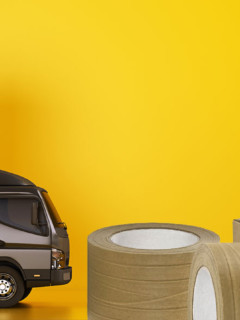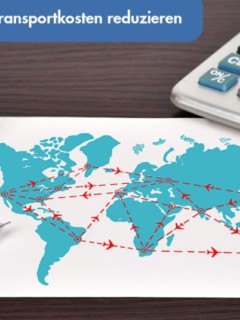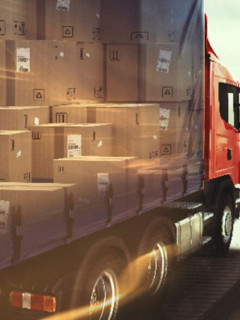Labels, seals and logos are a fine thing if they really provide orientation. But unfortunately many of them are not as self-explanatory as one would always wish. In the field of packaging, too, a large number of seals, labels, symbols and marks have now become established. As a RAJA customer, you have certainly come across the following examples. We explain the meaning.
How does the consumer recognise environmentally friendly products?
First of all, in general: Nowadays there are a lot of environmental logos that help consumers to recognise environmentally friendly products. There are different criteria that influence the evaluation of the products:
- Materials used
- resource-saving production
- socially acceptable working conditions in production
- fair trade
- energy-efficient consumption
- economical and recyclable packaging
- minimal or no health hazards for the consumer
- recyclability or the problem-free return of the product to natural cycles
- practicality
- reparability, durability and quality
- fair price
Where can I find out about environmental labels?
In order to find one’s way through the jungle of eco-labels and environmentally friendly brands, the German consumer association Die Verbraucher Initiative e.V. has created with Label Online has created a database that contains information and ratings for hundreds of brands and quality labels. Based on the ratings, consumers can quickly see which label means what and what quality is associated with it.
Mobile gives the Label app barcode scan provides immediate information on the scanned products.
The RESY logo
Three arrows in the shape of a triangle with the word “RESY” in the middle: this logo can be found on numerous transport and outer packaging made of paper, cardboard and corrugated board. It confirms that the material used in the packaging is recyclable and is recycled by the partners of RESY OfW GmbH. These include the Association of the Corrugated Cardboard Industry (VDW), Vfw GmbH, a specialist in the field of packaging recycling and recovery, and the “Association for the Promotion of the Interests of Producers of Corrugated Cardboard Raw Paper from Waste Paper”, which was closed in the Association of German Paper Factories (VDP). These three organisations know how to make recycling successful.
What is the purpose of the RESY number?
Participating manufacturers receive a 4-digit RESY number, by which the respective box can be assigned to the manufacturer. However, this information is purely for environmental purposes and is not publicly available. Companies wishing to be licensed for the RESY logo must conclude a contract for the use of the logo. For this purpose, the quantity of recyclable transport and outer packaging made of paper and cardboard sold in the previous year is taken as a basis on a tonne basis.
The RESY number below the logo identifies the manufacturer of the product. This is also the case with us: all RAJA cardboard boxes and containers bear the RESY imprint and are therefore environmentally friendly and suitable for recycling.
The design of a carton is irrelevant. Whether stable, single-wall quality, double-wall variants for fragile products or extremely stable models made of triple-wall material that also store loads safely in the long term: all of them are made of at least 70 percent recycled paper and can be easily recycled.
The IPPC logo
Away from corrugated cardboard, towards wood: on crates and containers you will often find a rectangular box with a small logo with the words IPPC and a letter and number code. This imprint identifies boxes made of solid wood intended for export outside the EU, in accordance with the ISPM15 Directive. IPPC stands for “International Plant Protection Convention ” – a subordinate organisation of the UN, and ISPM for “International Standards for Phytosanitary Measures”. The ISPM15 standard* was issued by the IPPC and ensures that no wood pests are introduced into other countries. In this way, it protects native forest stands.
It applies to all solid wood packaging with a minimum thickness of six millimetres. The packaging must be heat treated or fumigated with methyl bromide to ensure freedom from pests. The rectangular imprint, permanently affixed as a label, provides information on the manufacturer as well as the country and region of manufacture by means of a letter and number code. It also records the type of treatment carried out.
Here you can find more information on the topic ISPM 15 standard for wooden packaging.
The PEFC seal
which our Inca pallets, among others, bear.
The Progamme for the Endorsement of Forest Certification Schemes , PEFC for short, is the largest international institution for ensuring and marketing sustainable forest management. The aim of the PEFC is to document and improve sustainable forest management. This is ensured by an independent certification system based on national standards. Three pillars of sustainability must be taken into account: Economy, ecology and social compatibility.
In terms of content, the certification system for sustainable forest management is based on the international resolutions of the follow-up conferences to the Rio Conference on the Environment (1992). In detail, these are the criteria and indicators adopted at the Ministerial Conferences on the Protection of Forests in Europe by 37 nations in the Pan-European Process. These include the decisions of Helsinki (1993), Lisbon (1998) and Vienna (2003).
If a product made of wood bears the PEFC seal, such as our Inca pallets, this means in concrete terms:
- No more wood is felled than grows back.
- Where trees have been felled, they are replanted.
- The forest remains a safe habitat for animals and plants.
- Biodiversity in the forest is preserved.
- A sustainably managed forest retains its function as a natural protector of water bodies, soils and climate.
- You have the guarantee of the legal origin of the raw material wood.
- The high standards of occupational safety are observed in all forest work.
- Workers’ rights are respected.
- In all work, preference is given to skilled workers from the region.
- The rights of the people who live from and/or depend on the forest (for example, forest farmers or indigenous peoples in South America) are safeguarded.
The entire product manufacturing process – from the raw material to the ready-to-use end product – is certified and is reinspected every year by independent experts and certification bodies. Wood and wood products such as paper marked with the PEFC seal thus demonstrably originate from economically, ecologically and socially sustainable forestry. This gives consumers the assurance that the product they are buying comes from sustainably managed forests.
So far, 230 million hectares of forest have been managed according to PEFC standards. With 7.35 million hectares of certified forest area, which is about two thirds of Germany’s forests, PEFC is also the largest independent institution in Germany for ensuring sustainable forest management and the most important forest protection organisation.
The FSC logo
FSC is the abbreviation of Forest Stewardship Council and means Forest Stewardship Council or rather Forest Stewardship Council. The FSC created the first system for awarding sustainable forestry. Products and products from sustainable forestry operations are certified. The organisation was founded in Canada in 1993. There are now more than 1,000 members worldwide.
The Blue Angel
The Blue Angel was the first environmental label worldwide. It has been awarded in Germany since 1978. It is awarded to products that are particularly compatible with people and the environment when considered as a whole. In the meantime, more than 12,000 products and services from about 1,500 companies have been awarded the Blue Angel.
The EU Ecolabel
The EU Ecolabellabel, also known as the Euro Flower, identifies many of our cleaning and hygiene products. The label was created by the European Commission in 1992 for the labelling of products. Since 2000, it has also been possible to label services with it. The consumer has the possibility to identify more environmentally friendly products with this label. The EU Ecolabel is awarded to products or services that have a lower environmental impact than comparable products over their entire life cycle. The EU Ecolabel is recognised by the 28 EU member states as well as Norway, Iceland, Switzerland and Turkey. Currently, about 40,000 products carry the EU Ecolabel. In total, there are more than 30 different product categories, ranging from cleaning products to textiles, lubricants, paints and varnishes, accommodation and camping sites – food, beverages, pharmaceuticals and medical devices are explicitly excluded. The system for awarding the EU Ecolabel is voluntary and not mandatory.
The LGA test mark
The test mark LGA tested for harmful substances is now awarded by TÜV Rheinland and distinguishes furniture. Depending on the type of product, the criteria assessed differ, including technical testing for durability, testing for harmful substances and hygiene tests with regard to the sustainability of the product.
The TCO certificate
TCO Certified is a globally respected certification for sustainable IT products. In the technology industry, products are often manufactured in countries with poor working conditions and lower requirements for pollutant emissions. Some products have a short lifespan and cannot be repaired. TCO Certified gets to the bottom of this and only certifies products that meet all requirements in terms of working conditions, pollutant use and product life cycle.
The EU Energy Star
Since 1992 the EU Energy Star has been a voluntary award of minimum standards for office equipment in terms of energy efficiency. Together with the US Environmental Protection Agency (EPA), the EU Commission and IT experts set the award criteria for computers, notebooks, monitors, printers, scanners, copiers, fax machines, servers and uninterruptible power supplies.
The environmental labels at RAJA
To make it as easy as possible for you to find out about our certified packaging, we have introduced another label in our webshop. If one of our packaging products has been awarded one or more environmental labels, you will find this sign next to the product:














